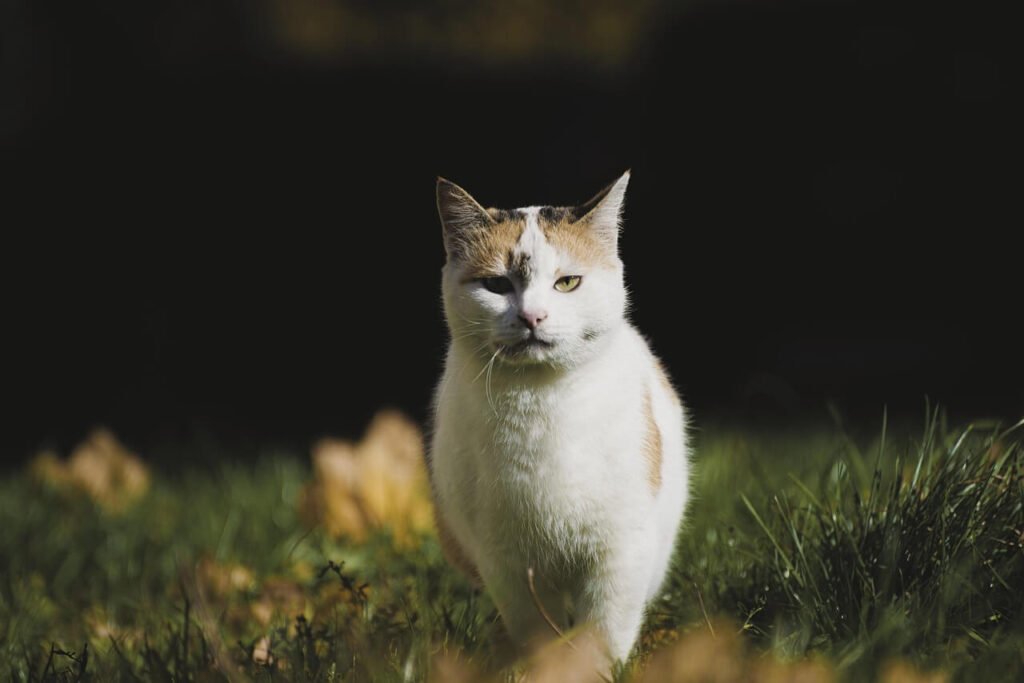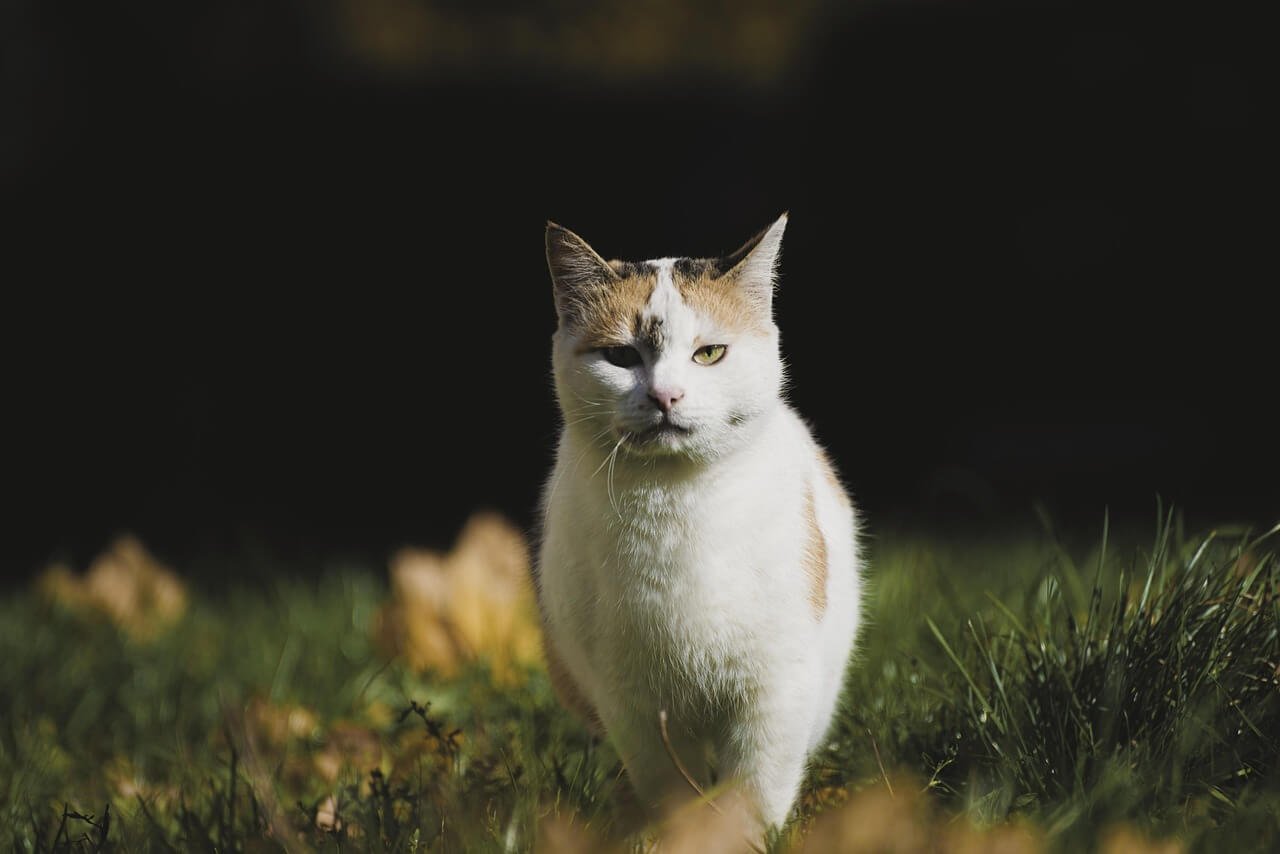Understanding Cat Stomach Gurgling: What You Need to Know
If you’ve ever cuddled up with your feline friend and heard strange gurgling sounds coming from their belly, don’t panic—it’s more common than you think. These noises, often described as “borborygmi,” are a natural part of your cat’s digestive process. While they can sometimes indicate normal bodily functions, persistent or unusual stomach gurgling may signal underlying health concerns. In this blog post, we’ll explore the causes behind cat stomach gurgling, how to differentiate between harmless sounds and potential red flags, and what you can do to ensure your furry companion stays happy and healthy.
What Causes Cat Stomach Gurgling?
Cats are fascinating creatures, and their bodies work in mysterious ways. Stomach gurgling is just one of the many sounds that can occur as part of their digestive system functioning. Here’s a breakdown of the most common reasons behind these curious noises:
Normal Digestion:
Just like humans, cats experience movement in their intestines as food is processed. This can create gurgling sounds as gas and fluids move through the digestive tract.Hunger Pangs:
An empty stomach can lead to louder gurgling sounds. When your cat hasn’t eaten for a while, their stomach may contract, producing noticeable noises.Gas Build-Up:
Cats can swallow air while eating quickly or drinking water, leading to trapped gas that causes gurgling.Dietary Changes:
A sudden switch in food or introduction of new ingredients can upset your cat’s stomach, resulting in increased gurgling.Hairballs:
Cats groom themselves frequently, and ingested hair can sometimes cause digestive disturbances, including gurgling sounds.
While occasional stomach gurgling is usually nothing to worry about, understanding its root causes can help you identify when it might be time to consult a veterinarian.
When Should You Be Concerned About Stomach Gurgling?
Not all stomach gurgling is harmless. There are certain signs that may indicate your cat is experiencing discomfort or a more serious issue. Here’s what to look out for:
Frequent Vomiting:
If your cat is vomiting regularly alongside the gurgling, it could point to an underlying gastrointestinal problem.Diarrhea or Constipation:
Changes in bowel movements often accompany digestive issues. Monitor your cat’s litter box habits closely.Lethargy or Loss of Appetite:
A lack of energy or refusal to eat can signify that your cat is feeling unwell.Abdominal Pain:
Cats may show signs of discomfort by meowing excessively, pacing, or avoiding being touched around their belly area.Weight Loss:
Significant weight loss paired with gurgling could indicate malabsorption or other serious conditions.
If you notice any of these symptoms alongside persistent stomach gurgling, it’s important to seek veterinary advice promptly. Early intervention can make all the difference in ensuring your cat’s well-being.
Check this guide 👉 Understanding Prolapsed Anus in Cats: Best 7 Health Tips!
Check this guide 👉 Understanding a Swollen Lip in Cats: Best 7 Health Tips!
Check this guide 👉Understanding Haws Syndrome in Cats: Best 7 Expert Care Tips

Signs of Normal Gurgling | Signs of Abnormal Gurgling |
|---|---|
Occasional soft sounds | Loud, frequent gurgling |
Happens after meals | Accompanied by vomiting |
No behavioral changes | Lethargy or hiding behavior |
Cat appears relaxed | Visible abdominal discomfort |
Regular appetite maintained | Sudden loss of appetite |
Tips to Support Your Cat’s Digestive Health
Maintaining a healthy digestive system is key to preventing excessive stomach gurgling in cats. Here are some practical tips to keep your feline friend’s tummy happy:
Provide a Balanced Diet:
Feed your cat high-quality food that meets their nutritional needs. Avoid frequent changes in diet unless recommended by a vet.Encourage Slow Eating:
Use puzzle feeders or slow-feed bowls to prevent your cat from gulping down food too quickly, which can lead to gas.Regular Grooming Sessions:
Brush your cat regularly to minimize hair ingestion and reduce the risk of hairballs causing digestive issues.Ensure Fresh Water Availability:
Always provide clean, fresh water to aid digestion and prevent dehydration.Monitor Food Intolerances:
Pay attention to any adverse reactions after introducing new foods and consult your vet if needed.
By incorporating these habits into your routine, you can help minimize unnecessary stomach gurgling and promote overall wellness for your cat.
How Veterinarians Diagnose Stomach Gurgling Issues
If your cat’s stomach gurgling becomes concerning, a veterinarian will likely perform several diagnostic steps to determine the cause. Here’s what you can expect during a visit:
Physical Examination:
The vet will palpate your cat’s abdomen to check for tenderness or abnormalities.Medical History Review:
Providing details about your cat’s diet, behavior, and recent changes can offer valuable insights.Blood Tests:
Bloodwork helps rule out infections, organ dysfunction, or other systemic issues.Imaging Techniques:
X-rays or ultrasounds may be used to visualize the digestive tract and identify blockages or foreign objects.Fecal Analysis:
Examining stool samples can detect parasites or bacterial imbalances contributing to digestive problems.
A thorough evaluation ensures accurate diagnosis and appropriate treatment, giving you peace of mind about your cat’s health.
Common Dietary Triggers for Stomach Gurgling
Diet plays a significant role in your cat’s digestive health, and certain foods can trigger stomach gurgling. Being mindful of what you feed your feline friend can help minimize these sounds. Here are some common dietary triggers to watch out for:
Dairy Products:
Many cats are lactose intolerant, and consuming milk or cheese can upset their stomachs.High-Fat Foods:
Rich or fatty treats can overwhelm your cat’s digestive system, leading to gurgling and discomfort.Raw Diets:
While raw food is popular among some pet owners, it may introduce harmful bacteria that cause digestive issues.Sudden Diet Changes:
Switching foods abruptly can shock your cat’s system and result in increased gurgling.Low-Quality Cat Food:
Foods with artificial additives or low nutritional value can irritate the stomach lining.
By identifying and avoiding these triggers, you can help maintain a calm and healthy digestive system for your cat.
How to Calm an Upset Stomach
If your cat’s stomach gurgling is accompanied by mild discomfort, there are steps you can take at home to soothe their tummy. These remedies are simple yet effective in many cases. Consider the following tips:
Offer Plain Cooked Chicken:
A bland diet of boiled, unseasoned chicken can help settle an upset stomach.Provide Pumpkin Puree:
Plain pumpkin puree (not pie filling) can aid digestion and reduce gurgling caused by constipation or diarrhea.Encourage Rest:
Allow your cat to rest in a quiet, comfortable space to help their body recover naturally.Limit Treats Temporarily:
Avoid giving snacks or treats until your cat’s stomach has settled.Monitor Water Intake:
Ensure your cat stays hydrated, as dehydration can worsen digestive issues.
These measures can often alleviate mild symptoms, but consult your vet if the problem persists or worsens.
Preventive Measures for Long-Term Health
Prevention is always better than cure when it comes to your cat’s digestive health. Taking proactive steps can reduce the likelihood of stomach gurgling and other related issues. Here’s how you can keep your cat’s digestive system in top shape:
Stick to a Consistent Feeding Schedule:
Regular meal times help regulate your cat’s digestion and prevent unnecessary gurgling.Choose High-Quality Food:
Opt for cat food formulated with natural ingredients and balanced nutrition.Avoid Overfeeding:
Portion control prevents overeating, which can lead to indigestion and gurgling.Schedule Routine Vet Check-Ups:
Regular veterinary visits can catch potential digestive issues early before they become serious.Keep Stress Levels Low:
A calm environment reduces stress-related digestive disturbances in sensitive cats.
By implementing these preventive measures, you can ensure your cat enjoys a happy, gurgle-free life.
Frequently Asked Questions About Cat Stomach Gurgling
Is stomach gurgling normal for cats?
Yes, occasional gurgling is typically normal and related to digestion. However, persistent or loud gurgling should be investigated.
Can stress cause stomach gurgling in cats?
Absolutely. Stress can disrupt a cat’s digestive system, leading to increased gurgling sounds.
Should I change my cat’s diet if they have frequent gurgling?
Only under veterinary guidance. Sudden dietary changes can worsen digestive issues.
How can I tell if my cat is in pain due to stomach gurgling?
Look for signs like restlessness, vocalization, or reluctance to be touched near the abdomen.
Can kittens experience more stomach gurgling than adult cats?
Yes, kittens’ developing digestive systems may produce more noticeable sounds.
Final Thoughts: Listening to Your Cat’s Body Language
As a loving pet parent, paying attention to subtle cues like stomach gurgling can strengthen your bond with your cat and ensure their long-term health. Remember, every cat is unique, and what might seem unusual at first could simply be part of their individual quirks. By staying informed and proactive, you can address any concerns early and provide the best care possible. So the next time you hear those curious gurgles, take a moment to observe and reflect—your cat will thank you for it!
Dog Tapeworm Life Cycle: Best 7 Expert Tips! – Learn how tapeworms infect dogs, spot symptoms, and break the cycle with expert prevention strategies.
Anxious Cat Body Language: Best 7 Expert Tips! – Learn to spot signs of stress, understand triggers, and help your cat feel safe and relaxed.
Anxious Dog Body Language: Best 7 Expert Tips! – Learn to spot signs of anxiety, respond effectively, and help your dog feel safe and secure.
Is Breeding Dogs Bad? Best 7 Expert Tips! – Explore the ethics, benefits, and risks of dog breeding to make informed decisions for a better future.





